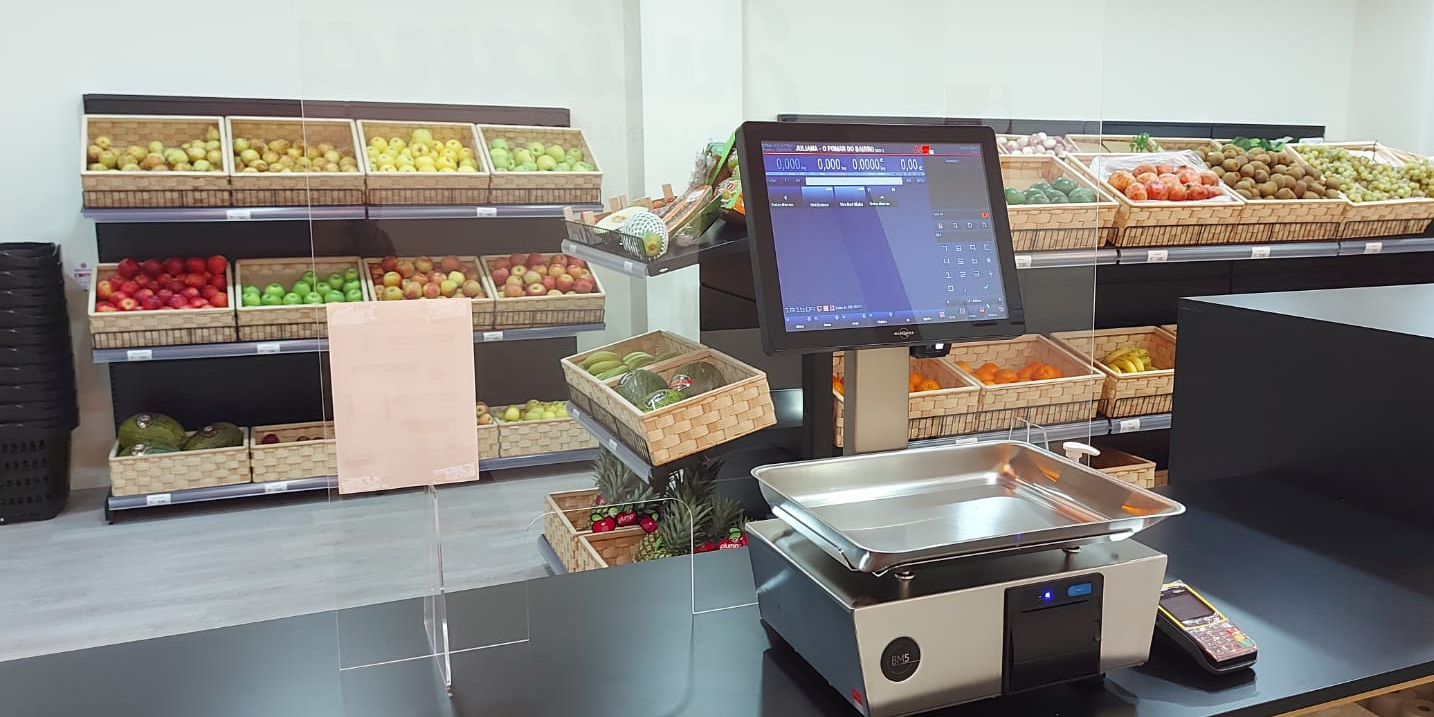
It’s dedicated to the Research and Development of Software for retail and industry. Created and joined in the Group in 2010.
Know more
Acquisition in 2004 of the entire share capital of EUROPESAGEM - Comércio Internacional de Balanças, Lda, a company specialized in the distribution of commercial and industrial weighing equipment (Founded in 2001).
Know more
Official representative of the German brand ESPERA, of weighing and labeling equipment. Created in 2011.
Know moreFor each type of retail business, there is a type of scale. And, at Balanças Marques, we want to help you choose yours.
Among the “all in one” scales, the checkout scales, the flat/double body scales and the suspension scales, it’s not always easy to choose the one – that scale that will easily fit into your business. But truth is each one has its functions and features. Each one has exactly what you need to fulfill the tasks of your supermarket, butchery, fishmonger, or fruit shop.
Flat/double body scale vs Suspension scale
The flat/double body scales are developed to work on a surface and can be found, mainly, in supermarkets and fruit shops.
The suspension scales are designed to be suspended, with the weighing plate away from surfaces. They are generally used in retail businesses, like fishmongers and butcheries, where the environment has more humidity and where it becomes necessary to protect the scale and the weighing from that element.
“All in 1” scale vs Checkout scale
In the market, there are several “all in 1” scales’ options for the retail business - as is the case of our commercial scales in the BM5 range and in the BM5 Junior range. These scales go well beyond the weight and also feature the POS function, working in an integrated mode with billing software. Versatile, they can even be prepared for connection to the cash drawer and equipped with a ticket printer or a label printer. The “all in 1” scales are therefore very practical for any retail business, but especially for supermarkets and fruit shops, as they allow customer service (from weighing products to invoicing) to be carried out entirely in the checkout section and on the same device.
Checkout scales, like our B One, on the other hand, are scales integrated with the cash register and are connected to the POS and the respective software by wires and, often, other software. They are therefore used at the time of payment and billing to weigh the items and communicate the result to the point of sale, thus requiring the use of more than one device in customer service.
Scale with labeller vs Scale with printer
Whether we are talking about flat / double body scales or suspension scales, weighing instruments are often equipped with a labeller or a ticket printer.
Labelling scales can be used at the checkout of any retail business, but are especially practical for weighing islands in a grocery store or for the fish, fruit or butcher sections of a supermarket. With these scales, it is possible to weigh the items and print a label with the weight, the price / kg, the final price and even a bar code. When receiving payment, one only needs to use the POS scanner to read the label and do the invoicing.
Also very practical and versatile, scales with a receipt printer are a good option for the cashier of any retail business, but also for a butcher's counter, for example. Thus, after preparing, weighing and registering an order, the butcher's employee can simply print a receipt with all the information of the articles and deliver it to the customer so that he can go to the checkout section. Then, the next step is just billing and getting the payment.
There would be more types of commercial scales to get to know, but, with this post, you already got a good idea of what is available in the market and with great grounds to start your search for the ideal scale for your retail business. Discover the options we have for you on our website and our online store and, if you have any other doubt about scales and commercial weighing, please contact us!
